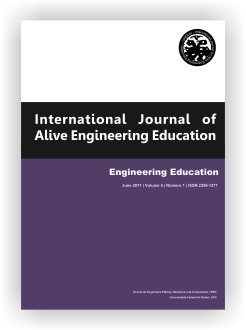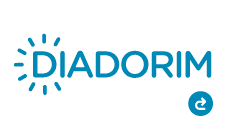Assessing a potential Conceive-Design-Implement-Operate curricular change in an engineering degree
DOI :
https://doi.org/10.5216/ijaeedu.v4i1.44364Mots-clés :
Accreditation, CDIO, Curriculum Change, Personal and Interpersonal skillsRésumé
The requirements of the Engineering Education are nowadays very broad and demand a set of skills which demands not only technical knowledge but also the ability to lead and innovate and Personal and Interpersonal skills. A framework for the assessment of a potential Curricular Change is necessary to guide the analysis of the program with respect to the stakeholders and the legislation of the country, in order to develop appropriate learning outcomes. A Conceive-Design-Implement-Operate (CDIO) approach was chosen for an evaluation conducted in a mechanical Engineering Degree in Brazil. The work consisted in the application of a survey with students and professors and a literature review of the legislation and studies that raised the required competences and skills for the modern Engineer. The results show a great potential for a CDIO set of skills in Engineering Degrees in Brazil and reveal the frequent demands of stakeholders before a Curricular Change.
Références
E. F. Crawley, J. Malmqvist, S. Östlund, D. R. Brodeur. Rethinking Engineering Education. Springer Science?Business Media, LLC, 2007.
CNE. Resolução CNE/CES 11/2002. Diário Oficial da União , pp. Seção 1, p. 32. April 2002.
Confea. Resolução 1.010. Diário Oficial da União. Brasília, Brazil. August 2005.
Confea. Decisão PL 1139/2012. Terceira Sessão Plenária Extraordinária. Brasília, Brazil. August 2012.
E. F. Crawley, W. A. Lucas, J. Malqvist, D. R. Brodeur. "The CDIO Syllabus v2.0: An Updated Statement of Goals for Engineering Education". Proceedings of the 7th International CDIO Conference, Technical University of Denmark, Copenhagen. June 2011.
N. M. Verticchio. Análise comparativa das habilidades e competências necessárias para o engenheiro na visão da indústria, dos discentes e dos docentes. Belo Horizonte, Brazil. August 2006.
RBF Sistemas e Métodos de Informação. O engenheiro dos novos tempos. São Paulo, Mimeo, March 1998.
R. M. Felder, R. Brent. The ABC's of Engineering Education: ABET, Bloom's Taxonomy, Cooperative Learning and so on. Proceedings of the 2004 American Society for Engineering Education Annual Conference & Exposition.
F. O. Simon. Habilidades e Competências em Engenharia: criação e validação de um instrumento. Master Thesis. Campinas, SP , Brazil. 2004.
Téléchargements
Publié-e
Numéro
Rubrique
Licence
Copyright
The author is responsible for the following statements by submitting an article electronically in the International Journal of Alive Engineering Education (IJAEEdu):
a) States that the document in question was reviewed by an expert in English language and it is an original work and it holds the prerogative to grant the rights contained in this license. It also states that the document does not infringe, as far as it is possible to know the rights of any other person or entity.
b) If the document in question contains material which does not hold the copyright, the author states have obtained the copyright holder’s permission to grant the Universidade Federal de Goiás (UFG) the rights required by this license, and that such material whose rights are third is clearly identified and acknowledged within the text or content of the document.
c) States that the study was conducted in accordance with the ethical standards of all applicable institutional, local, national and international guidelines.
d) It also states that any person appointed as author or co-author of the document is aware of it and agrees to be so appointed.
Authorization Form
As responsible for the submission of the document, I authorize the School of Electrical, Mechanical and Computer Engineering of the Federal University of Goiás to provide the paper free of charge, through the Electronic System for Publishing Magazines UFG (SEER / UFG) or in printed form, without compensation of copyright, in accordance with Law No. 9610/98. Is allowed, reading, printing and / or download, as a promotion of the Brazilian scientific production. Any use of the work not authorized under this license or the copyright law is prohibited.



